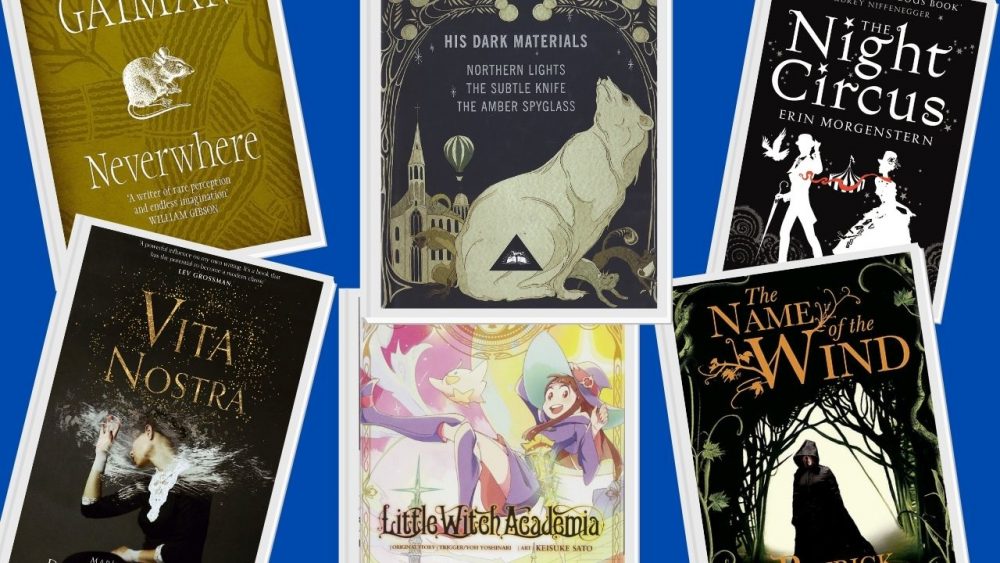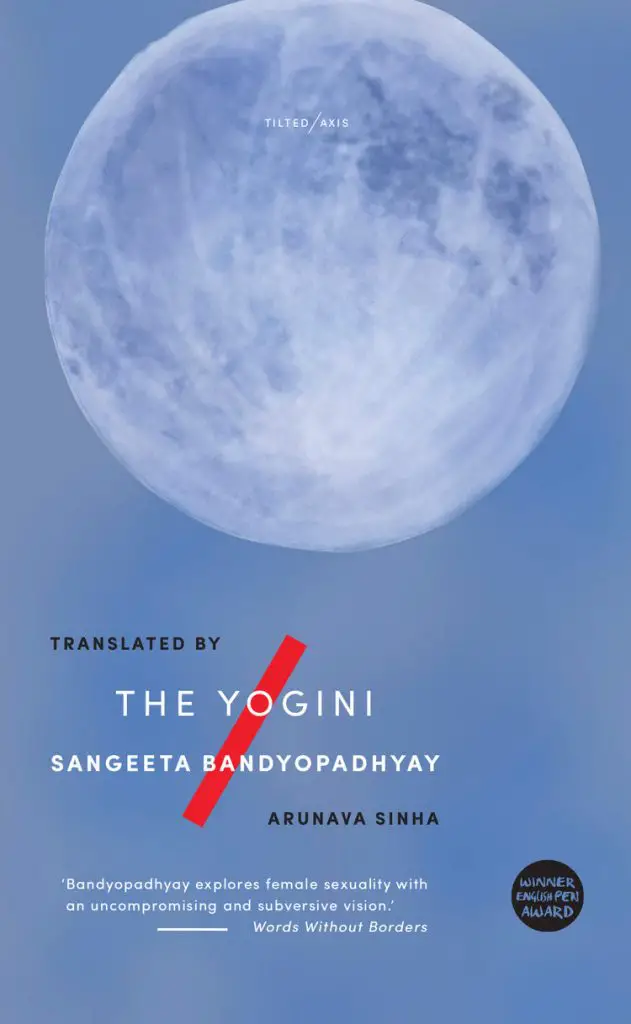There is so much beauty, mystery, and excitement to Japanese history and culture. The best books on Japan explore the art, theology, architecture, theatre, and food of Japan. To really understand Japan, it’s vital to get a rounded view of the Land of the Rising Sun by reading the best books on Japanese culture and history – both modern and ancient.
From World War II to today, via the rise of industry, animation, and video game culture. From the rise of Buddhism in the 7th century to the Meiji Restoration 150 years ago, and all the art, culture, war, and change that came and went along the way. All of that and more can be found here in these ten best books on Japan (both history and culture).
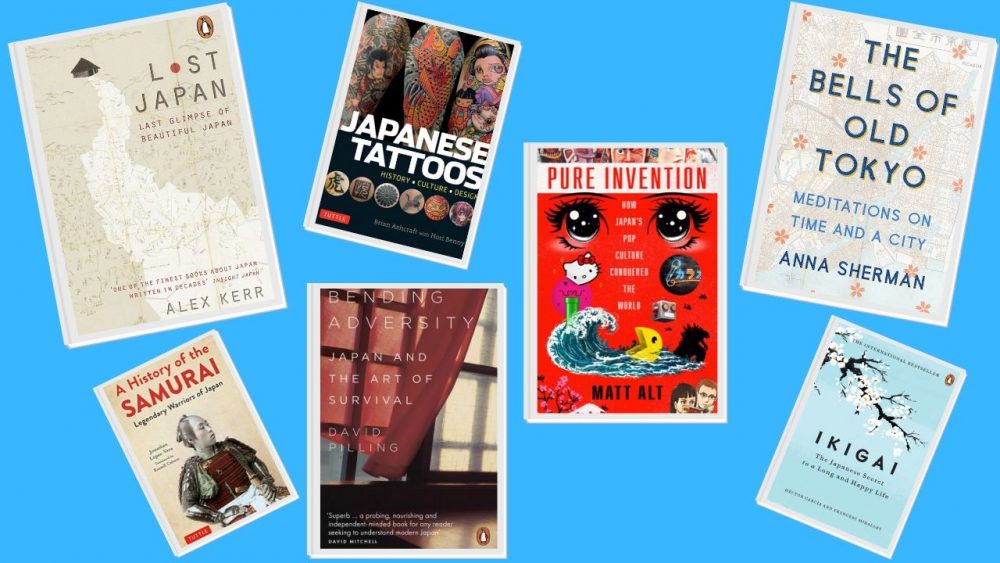
Best Books on Japanese Culture
Japanese culture is often romanticized by people all around the world, and this isn’t for no good reason. There are a lot of aspects of Japanese culture to be impressed by and to learn from. This stretches from technological innovation to social manners and graces to shared philosophies.
If you’re looking for the best books on Japan which explore the cultural side of Japanese history — from anime and video games to more abstract philosophical concepts — here are five of the best books on Japanese culture. These books on Japan can help you you to enjoy and, broaden your understanding of, Japanese culture, both past and present.
Pure Invention by Matt Alt
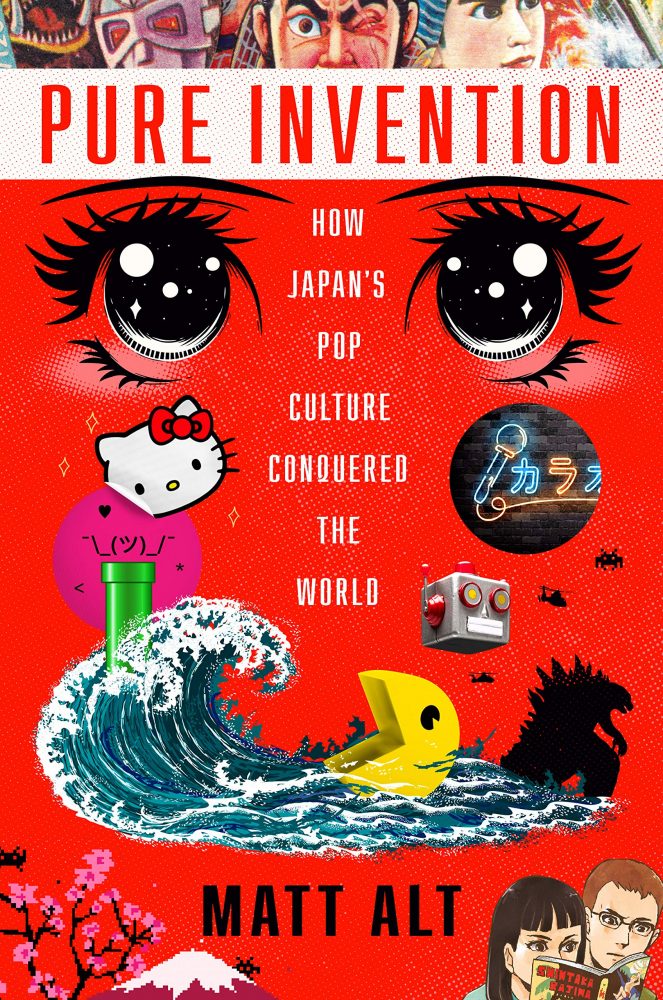
Pure Invention is, to put it bluntly, one of the most powerful books on Japanese culture you will ever read. Whether you’re interested in Japanese culture because you grew up on anime, manga, video games, and Hello Kitty, or you’re interested from an economic, political, and industrial perspective, both interests are met here. This is a very new book, but it will go down as one of the best books on Japan, period.
In Pure Invention, Matt Alt tackles the modern history of Japan (World War II to today) through the lens of its popular culture and how that pop culture (anime, fashion, karaoke and Walkmans, toys and games, kawaii culture etc) quite literally conquered the 20th century.
This book is written with elegance and passion, with a phenomenal amount of research behind it. We learn so much about the people who led the charge: the designers, toymakers, artists, animators, and businessmen who forged modern Japan. There are few books on Japan as influential and inspiring as Pure Invention.
Lost Japan by Alex Kerr
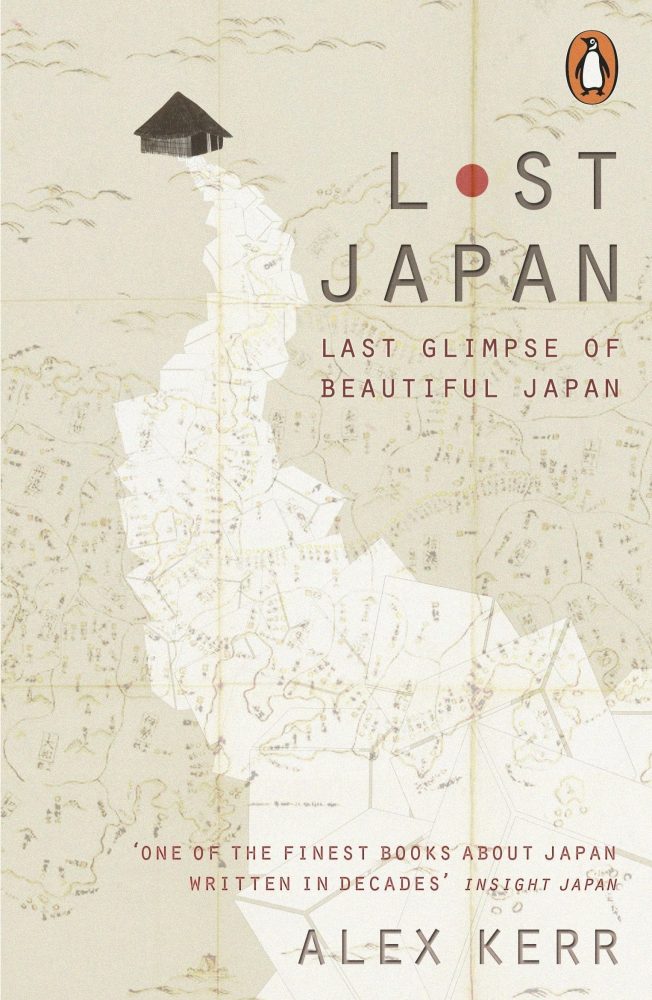
Alex Kerr is a fascinating individual. An American who moved to Japan in the early years of his adulthood, he very quickly mastered the language. From here, Kerr built a house in the countryside, and wasted no time in researching and forming an obsession with the traditional arts culture of Japan. And that’s what Lost Japan is all about.
In this fantastic book on Japanese culture, Alex Kerr looks at famous traditions and arts from across Japanese history (tea ceremonies, bunraku and noh theatre, calligraphy, and so much more). He explores the history and traditions, the dedication and mastery, the origins and legacies of these various arts and crafts from Japan.
If you’re looking for the best books on Japan because you’re fascinated by the traditional arts and crafts — theatre, design, painting, writing — then Lost Japan is the book on Japanese culture that you’re looking for.
Read More: The Best History Books Ever Written
Fifty Sounds by Polly Barton

Fifty Sounds is an exploration and experience of Japanese culture through immersion and language learning. At the age of twenty-one, Polly Barton took the JET programme and found herself on a small Japanese island.
During her time working as a teacher, Barton fell into a deep love affair with the Japanese language. She became enamoured with its sounds, its onomatopoeia, its unique quirks, and its way of distilling life experiences.
In Fifty Sounds, we see how the Japanese language led Barton to experience new feelings and see the world differently. It took her life down a unique path that eventually led to her becoming a Japanese-to-English translator.
If you’re looking for one of the best books on Japan to really hone in on the Japanese language, this is it. Fifty Sounds explores modern Japanese culture through a linguistic and philosophical lens. It is also laugh-out-loud funny, full of tragic moments, love, sex, and frustration. Deeply philosophical and hilarious in equal measure.
Japanese Tattoos: History, Culture, Design by Brian Ashcraft and Hori Benny
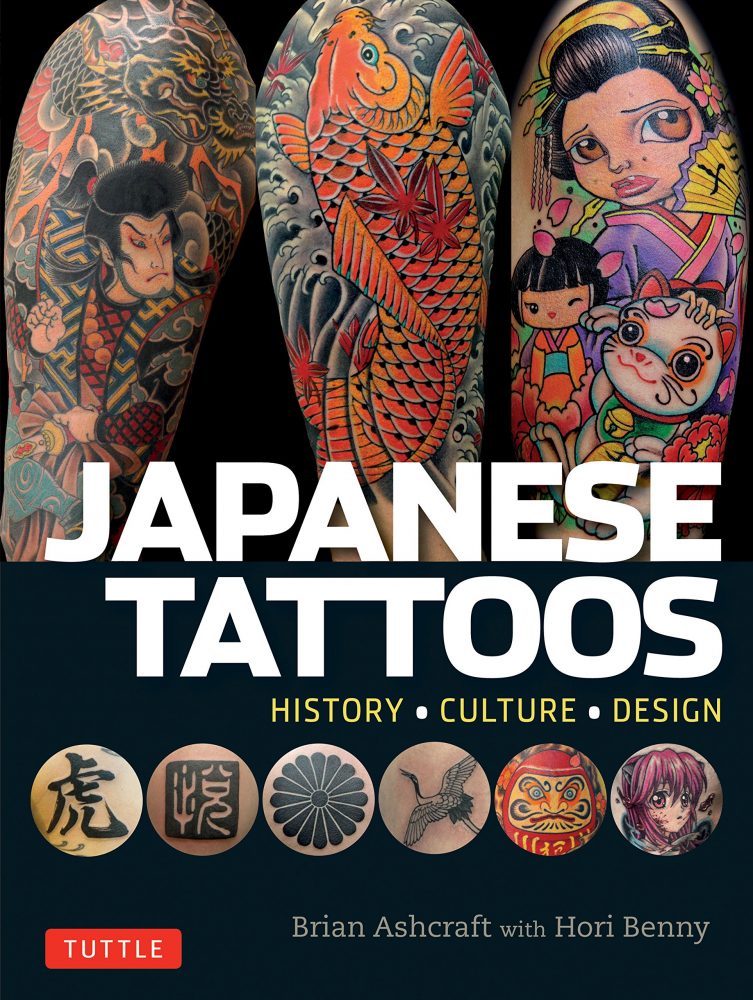
Brian Ashcraft has spent twenty years living in Osaka and writing for publications such as Kotaku and The Japan Times. He has also published multiple books on Japan, from the history of whisky to the cultural revolution led by the Japanese schoolgirl.
In Japanese Tattoos: History, Culture, Design, Ashcraft explores exactly that. After all, Japanese tattoos are famous the world over. Tattoo lovers with no real interest in Japanese culture still enjoy tattoos depicting dragons, koi fish, phoenixs, and cranes. But where does all of this come from, culturally speaking?
This photo-heavy book explores the craft of tebori (the traditional act of tattooing in Japan), as well as interviews with prominent Japanese tattoo artists working today. If you’ve ever wanted to better understand the imagery and background of Japanese tattoos, and how tattoos have historically been such an integral part of Japanese culture, this is the book for you.
Forest Bathing by Hector Garcia and Francesc Miralles
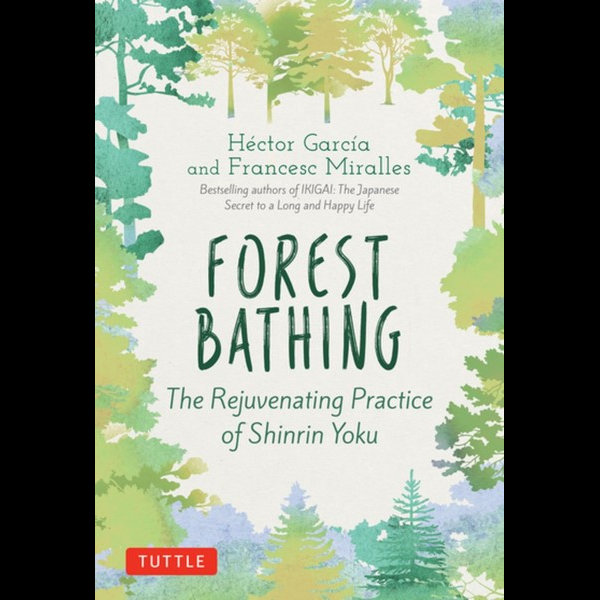
Hector Garcia found international fame with his book A Geek in Japan but his newest book in collaboration with Francesc Miralles explores a more specific philosophy of Japanese culture. Forest Bathing examines the practice and the benefits of what the Japanese call shinrin yoku.
In an increasingly busy world of exhausting work culture, rising levels of pollution, and exponential urban population growth, it is more vital than ever before for us to find a way to switch off, escape to nature, and reconnect with the Earth.
The Japanese practice of shinrin yoku has countless physical, emotional, and mental health benefits, and they are all explored here in this book.
As the best books on Japan go, this one is both very specific and very broad. Though it tackles on concept within popular Japanese philosophy, it also spans the globe and examines how other cultures have traditionally done similar things. Forest Bathing ties Japanese culture to the world while simultaneously showing us what is so unique about Japanese philosophy.
Ikigai: The Japanese Secret to a Long and Happy Life by Hector Garcia and Francesc Miralles
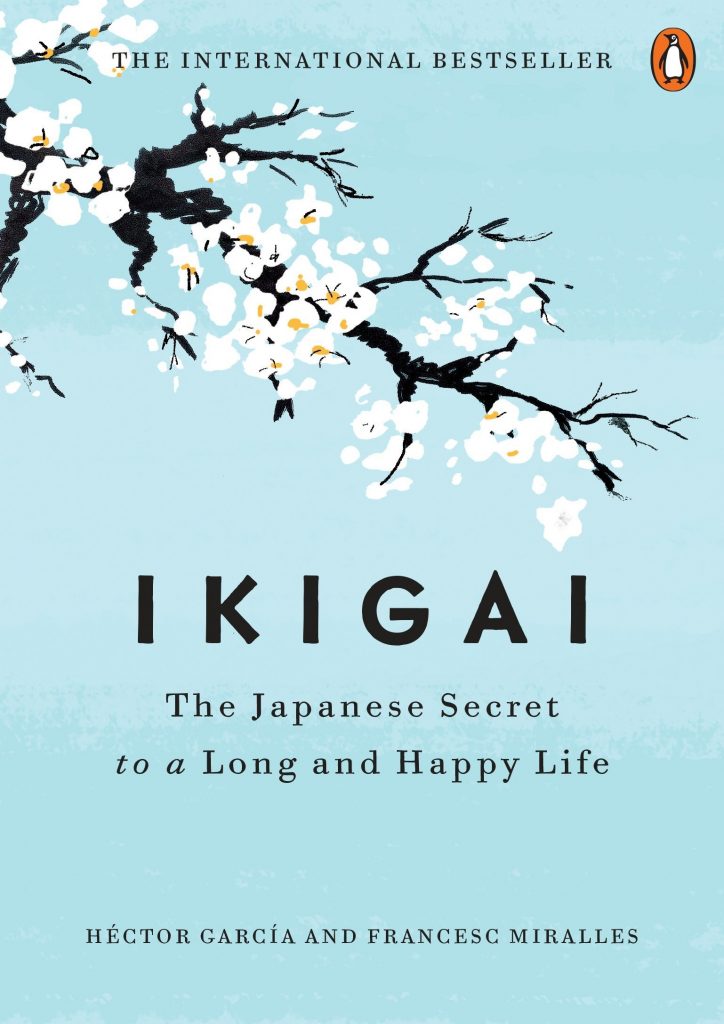
Before Garcia and Miralles released Forest Bathing, they exploded onto the scene as a revelatory writing pair with their book Ikigai: The Japanese Secret to a Long and Happy Life.
Similar to the Danish concept of hygge, ikigai has become a very popular word in recent years, but there truly are some really fascinating lessons to be learned here, as well as some eye-opening historical and cultural facts and details to be found.
This is not a light and fluffy self-help book, by any means, Ikigai: The Japanese Secret to a Long and Happy Life looks at the philosophy of finding one’s purpose or meaning in life. The book explores how that idea has been approached by different peoples across Japan — both geographically and historically.
The best books on Japan all look at some seemingly enigmatic aspect of Japanese history, culture, or philosophy and attempt to offer us a better understanding of that subject. In Ikigai, Garcia and Miralles absolutely manage this. There are revelations to be found in this, easily one of the best books on Japanese culture.
Read More: Best Books on Minimalism and Sustainable Living
Best Japanese History Books
With Japan having such a rich and fascinating history, and elements of its history so famous around the world, there is an undeniable allure for people wanting to read the best books on Japan, especially Japanese history.
Many of us want to better understand the samurai and shogun, Shinto and Buddhism, the post-war transformation of modern Japan, the history of Japanese writing systems, art, literature, and aesthetics, here are five Japanese history books to answer all of those questions and more.
Stranger in the Shogun’s City: A Woman’s Life in Nineteenth Century Japan by Amy Stanley
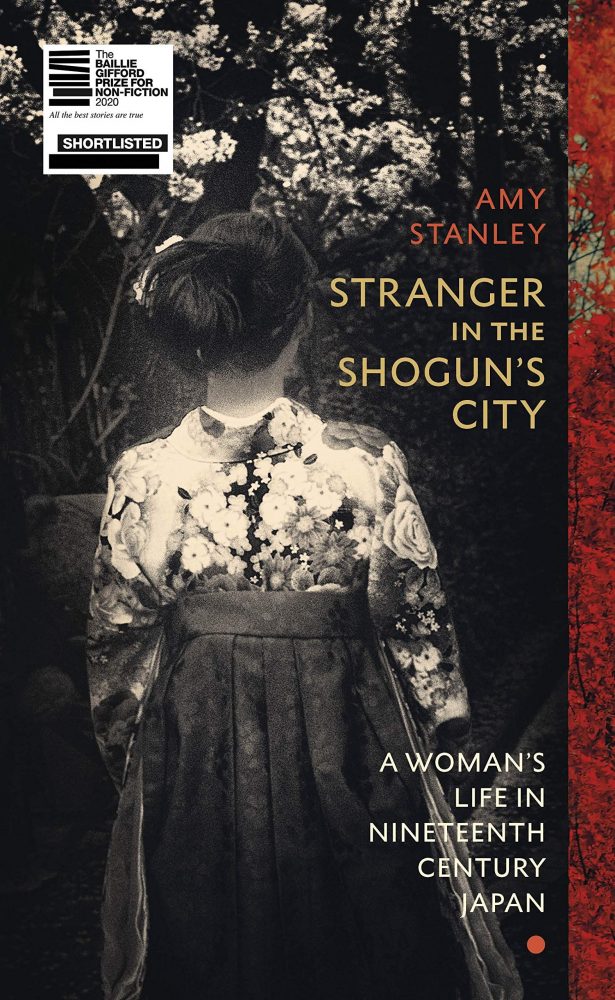
This is a book that manages to do a lot of things very, very well. Stanley should perhaps be most praised for her ability to take the all but unknown story of a woman who lived two hundred years ago and uncover enough of her story to then transform it into something as compelling and narrative as a novel.
Not only does Stranger in the Shogun’s City read like a beautiful historical novel set in Edo period Japan; it also works as a gripping and enlightening Japanese history book, painting a vivid and detailed image of both city and rural life.
Beginning in Japan’s snow country, Stranger in the Shogun’s City follows the early life of Tsuneno, daughter of a local monk, as she grows up in a world similar to that of Belle, hoping for more than this provincial life. She is married and divorced three times before the age of thirty, only to then leave for Edo (the city we now call Tokyo).
At the time, Edo was a growing, expanding military and commercial capital of Japan, and Tsuneno travels there to discover the beating heart of her nation. She must learn and adapt and understand. All of what we read is true, built around astonishing and diligent research from Amy Stanley.
Stranger in the Shogun’s City is an outstanding Japanese history book, as enticing and fluid as any novel. It brings to life a fascinating period of Japanese history and shines a light on the life of a woman from a place nobody knows, a woman who swims against the current to do something different with her life.
Japan Story: In Search of a Nation by Christopher Harding
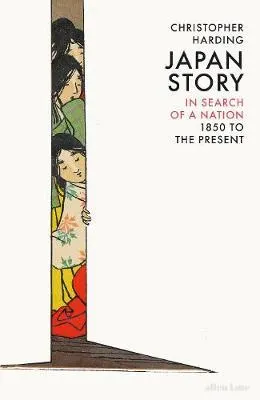
Everything changed in the middle of the 19th century. Until this point, Japan had been living for more than 200 years in a time known as the Edo period: an era of national peace after centuries of civil war. With the opening of Japan’s borders came a period of westernisation, in fashion, architecture, law, and economics.
From here, Japan went to war with Russia, forged an empire, captured Taiwan and Korea, and became an axis power during World War II. Then, from loss and economic devastation came a new cultural revolution which led to the Japan we know today.
All of this, and so, so much more is explored in rich and fascinating detail in Christopher Harding’s fantastic book, Japan Story: In Search of a Nation (1850 – Present). This book is an almost intimate narrative history of Japan from the street level, and a must-read Japanese history book for anyone curious about the political, economic, and empirical history of Japan.
The Japanese: A History in Twenty Lives by Christopher Harding
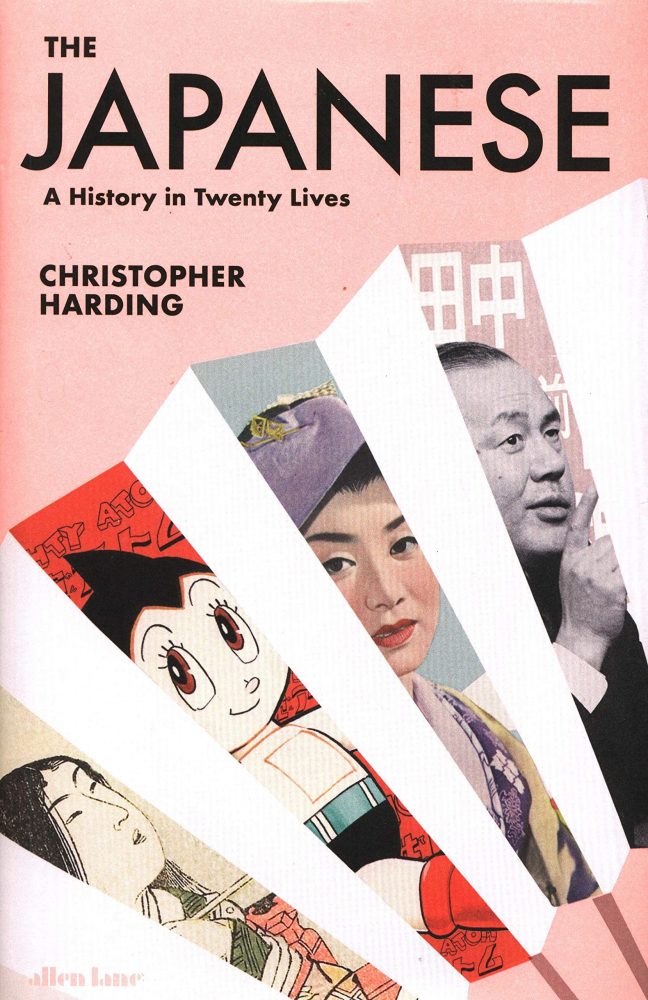
The second Christopher Harding book on this list is a fantastic follow-up to Japan Story. While Harding’s first book covered a specific and narrow sliver of Japanese history, The Japanese is much larger in scope, and it handles that scope in a clever way.
The Japanese follows the complete history of Japan, beginning so far back in time as to slip into myth and unconfirmed stories, before taking twenty jumps through time to meet us back in the modern day. The conceit here is that Japan’s history is taught to us through twenty select historical figures: politicians, artists, inventors, samurai, and more. Important and impactful people, famous and forgotten alike.
Each of the twenty people of Japanese history covered here represent their era in some way. They get a chapter focussed on their lives, exploits, and accomplishments, but that chapter will also give plenty of political and cultural background details in order to build the world of Japan that they lived through.
The Japanese is an engaging and dynamic book with a lot to teach us. It’s a clever and addictive way of relaying so much disparate information, chaining it together, tightly contextualising it, and making it easily digestible for any reader interested in finding the best books on Japan.
A Brief History of Japan: Samurai, Shogun and Zen by Jonathan Clements
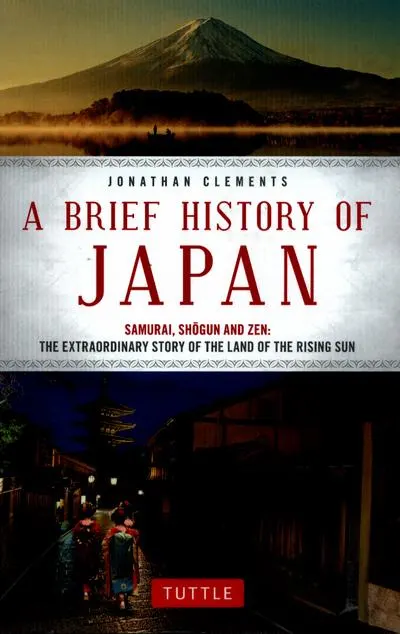
Jonathan Clements is a favourite writer of mine: an expert in both Chinese and Japanese history, an author of books on both, and a fluent speaker of both languages. An impressive character by any definition. A Brief History of Japan is one of Clements’ newest books, one of his shortest, most accessible, and yet broadest in terms of subject matter.
If you’re looking for a concise history of Japan, you’ll certainly find it here. This book covers more than 1500 years of Japanese history with clarity, simplicity, and no shortage of passion. You’ll come to understand Shinto, samurai, Zen Buddhism, the Sengoku Jidai, and so much more.
You’ll also learn fascinating facts about many of Japanese history’s most infamous people (like how shogun Ashikaga Yoshimitsu was gay and, in 14th century Japan, that just wasn’t a big deal).
A Brief History of Japan is written with whimsy, character, and real passion. Where the best books on Japan (history or culture) are concerned, this is one that I cannot recommend enough. It’s a fun and fascinating time from cover to cover.
The Bells of Old Tokyo by Anna Sherman
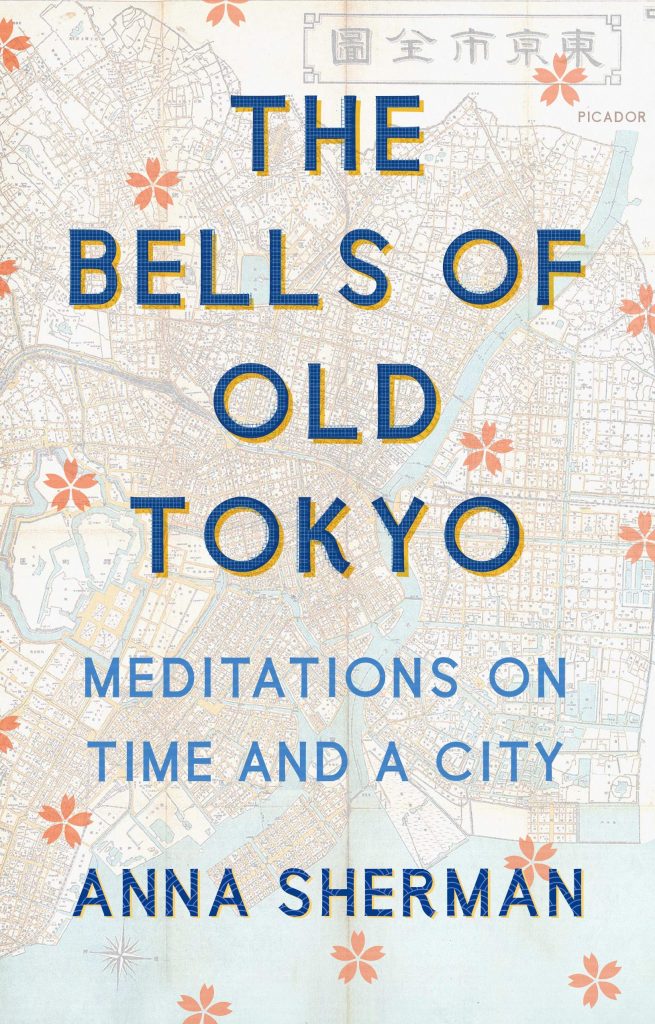
Anna Sherman’s approach to writing is poetic and infectious. In The Bells of Old Tokyo, she takes herself on a journey around Japan’s capital, down its narrow yokocho alleyways and up its tallest towers, searching through the history of Tokyo to try and understand the city’s very soul.
This book is very personal and personable, led by Sherman’s own narrative and interwoven with her own discoveries and lessons learned. In my own review of The Bells of Old Tokyo, I remarked that, “This book is full-to-overflowing with little-known facts, fun quips, sorrowful moments, and cultural meditation.
And so, as someone with a deep adoration for Tokyo, its people, its art, and its history, I found myself hungry for more, drying up my highlighters and letting my pens run out, becoming increasingly more drawn in by Sherman’s historic and personal narrative.”
The Bells of Old Tokyo toes the line between Japanese culture and Japanese history, giving us plenty of facts, context, and narratives for both. A life-changing book on Japan, without a doubt.
Bending Adversity by David Pilling
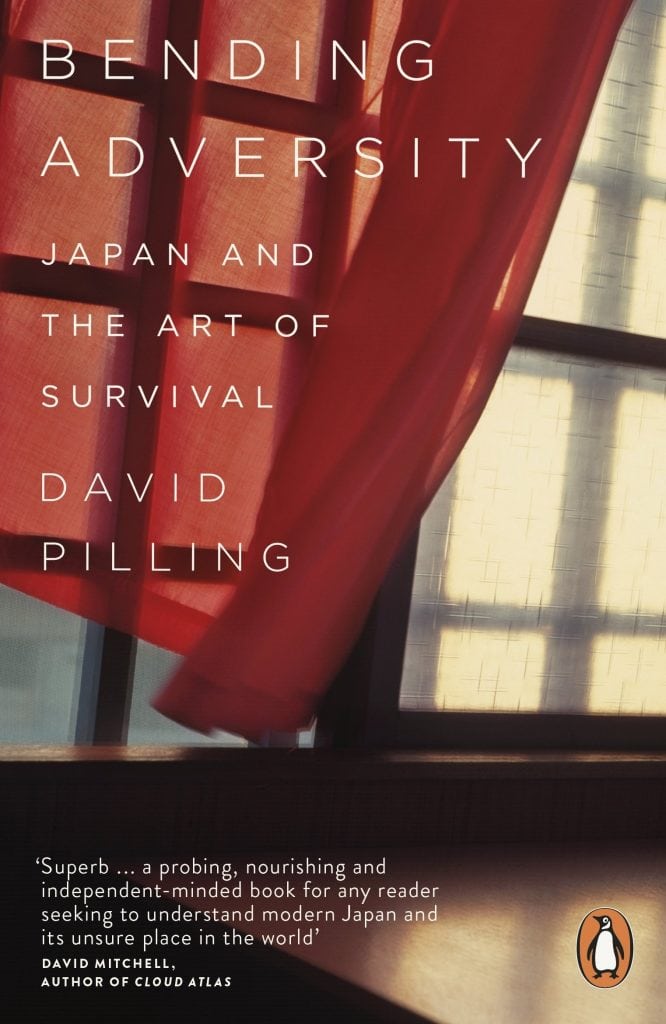
When I first moved to Tokyo, this was a book I read very early on. Bending Adversity is an inspiring look at how Japan’s collective approach to innovation, design, community, and growth has ensured the nation’s survival and flourishing time and again.
The context of Bending Adversity is more specific, however. It is very much a modern history book on Japan, first exploring the effects of the 2011 tsunami and the subsequent Fukushima Daiichi Nuclear Disaster, as well as how Japan responded to the disaster on the community level.
From here, Pilling travels back through time to 20th century post-war Japan, the economic bubble of the 1980s, the bursting of that bubble, and what came next.
In Bending Adversity, David Pilling interviews authors and writers about such topics as democracy in Japan, feminist art and literature, economic trends, and many more enormous concepts. It is a rich and enlightening book from beginning to end. Pairing Bending Adversity with Japan Story and Pure Invention will offer readers a perfectly rounded look at 20th century Japanese history and culture.
A History of the Samurai by Jonathan Lopez-Vera
Translated from the Spanish by Russell Calvert
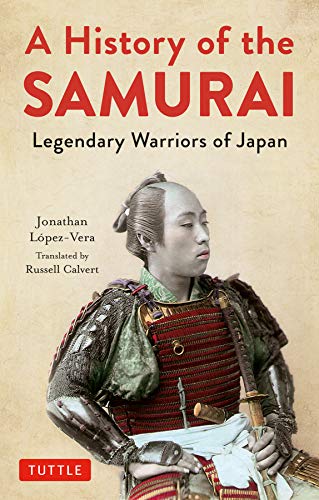
You can’t rightly dive into a stack of Japanese history books without having at least one of them be dedicated to the samurai. In many ways, as A History of the Samurai proves, for so much of Japanese history the samurai essentially were Japan.
There is a blurring of the lines between the sword-wielding warriors, the political class, and countless historical events which is impossible to avoid.
A History of the Samurai is a very clear and concise Japanese history book. There is very little fluff here, with chapters keeping to the facts and key details in order to paint a vivid and uncluttered timeline of 1000 years of Japanese history.
Each chapter has multiple optional subsections, each one focussing on a specific person or moment. They’re optional but they provide so much fascinating context for readers interested in learning about the intricate details of a certain period, person, or battle.
Jonathan Lopez-Vera has done a stellar job here in essentially painting a broad historical picture of Japan through the context of its samurai class. This is not so much a book on the samurai from a cultural or traditional perspective as it is an entire history of a millennium of Japanese history.
Read More: Manga With Self-Willed Female Protagonists

